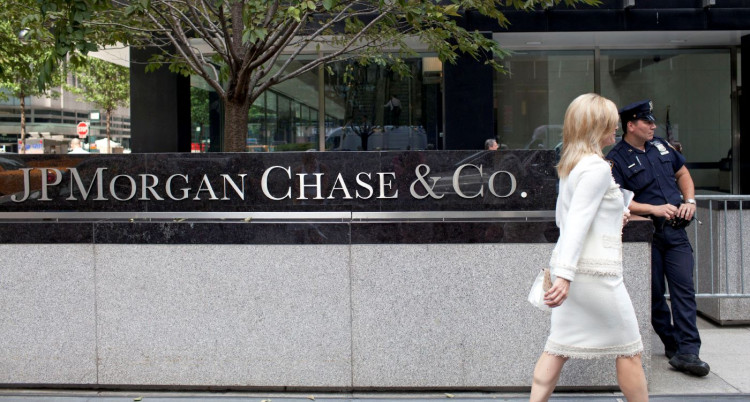JPMorgan Chase, the largest bank in the United States by assets, saw its stock plummet over 5% on Tuesday following a warning from the bank's president, Daniel Pinto, regarding overly optimistic expectations for the bank's net interest income (NII) in 2025. The announcement comes at a critical juncture as the Federal Reserve is widely expected to begin a series of interest rate cuts, which could significantly impact the bank's earnings from interest payments.
Speaking at a financial conference in New York, Pinto highlighted that current forecasts for JPMorgan's NII-a key metric that reflects the difference between what the bank earns on loans and pays out on deposits-are not aligned with the anticipated monetary easing cycle. "NII expectations are a bit too high," Pinto stated, adding, "Next year is going to be a bit more challenging." Although he refrained from providing a revised estimate, Pinto's comments were enough to send JPMorgan shares tumbling, with the stock dropping as much as 7.5% during the session before closing 5.2% lower.
This marked JPMorgan's worst daily decline since June 2020, as investors reacted to the bank's tempered outlook. The market's response underscores broader concerns about the potential impact of falling interest rates on the banking sector's profitability. Chris Marinac, director of research at financial advisor Janney Montgomery Scott, noted, "The commentary about too much optimism on NII for 2025 from the management has rattled the market." He added that concerns about the economy and the political climate could contribute to increased volatility in bank shares in the coming months.
JPMorgan had previously forecast its NII to rise to $91 billion this year, buoyed by elevated interest rates. However, with the Federal Reserve expected to lower its key policy rate by at least 25 basis points at its September meeting, analysts now question whether the bank can meet its earlier projections. The prospect of rate cuts complicates the picture for banks like JPMorgan, which have benefited from the higher rates but may now face a squeeze as new loans and securities yield less.
In addition to the concerns about NII, Pinto also warned that expenses could inch up next year, further dampening investor sentiment. Analysts had estimated JPMorgan's expenses for 2025 to be around $94 billion, but Pinto suggested that figure might be too optimistic. "There are a bunch of components that tell us that probably the number on expenses will be a bit higher than what is expected at the moment," he said.
Despite the cautious outlook on NII and expenses, JPMorgan did offer some positive news. Pinto noted that the bank expects its total investment banking fees to climb by 15% in the third quarter, driven by strong performance in its newly merged commercial and investment bank unit. The bank's profit rose to a record in the second quarter, with a 46% jump in investment banking revenue. However, this was not enough to offset concerns about the broader impact of falling interest rates.
Trading revenue, another significant component of JPMorgan's earnings, is expected to be flat or rise by about 2% in the third quarter. This compares to a 10% trading revenue increase in the second quarter. The projection aligns with more subdued guidance from other major banks, including Goldman Sachs, which recently predicted a 10% decline in trading revenue for the third quarter.






